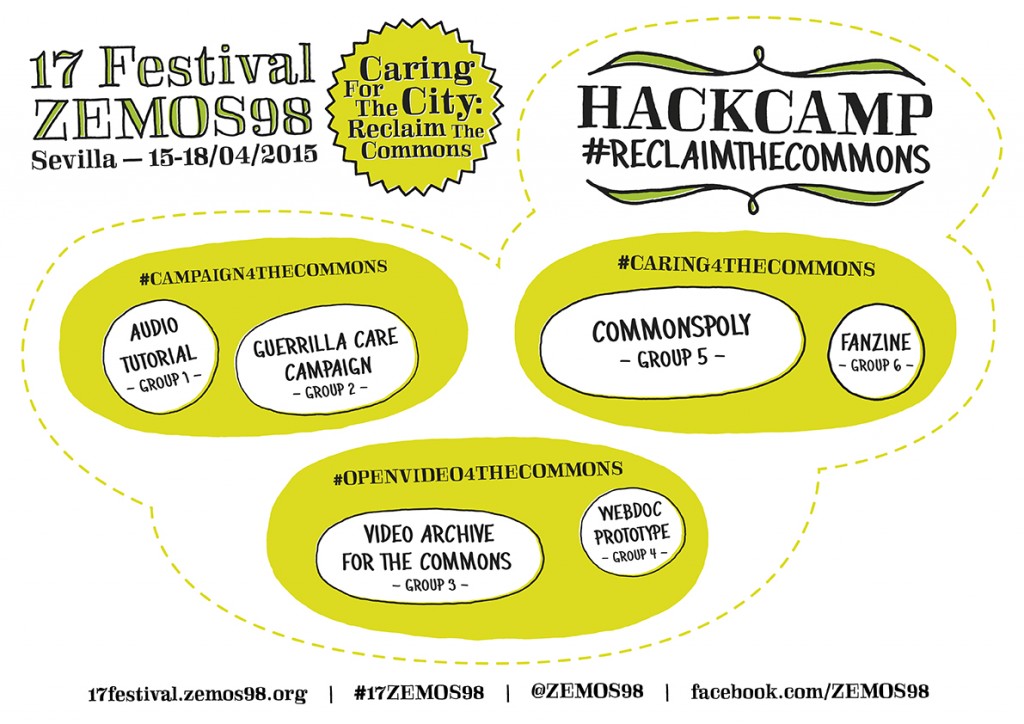#ReclaimtheCommons was a three days hackcamp for 40 activists, mediamakers, hackers and thinkers who are part of communities (mainly from Europe) working in the fields of the commons, alternative and socially engaged economies and the demand for public spaces as common goods. It was take place in Seville on the 16th, 17th and 18th of April 2015.
«The general approach of the hackers in dealing with the outside world is not accepting
the limits that are given to you once you approach something. The hackers
are engaged citizens and artists by default. If you are a hacker, you are ethical by
design».
Tim Pritlove of the Chaos Computer Club in Berlin during Ars Electronica 2008.
From this broad and inclusive definition of hacking, the hackca mp aimed to be a format in between a hackathon (an intense event during one or a few days in which a group of people work together to produce something as a demo or a prototype), an atelier (which is a participative and non-hierarchical educational format) and a meeting (an encounter to produce personal connections, to share thoughts and reflections, etc).
The general objectives of #ReclaimtheCommons as a hackcamp were:
- To strengthen a pan-european network of agents and communities working in the fields of the commons, alternatives and socially engaged economies and { the demand for (digital and non digital) public spaces as common goods.
- To discuss and to experiment how new media and digital archives can contribute to improve and amplify the work of the different social agents that are taking care of the Commons.
- To create a self-space to share thoughts and personal experiences related to { how to care (self-care, care of the others) during a social struggle.
These objectives had three related topics/hashtags which provided a theoretical framework for the work related to the hackcamp. Every topic had two expected outcomes that provided a challenge to the participants. These outcomes answered to the notion of a prototype: this means to produce something shareable which allows third parties to improve it and to rewrite it. And every outcome/challenge structured a small group between five to seven people.

